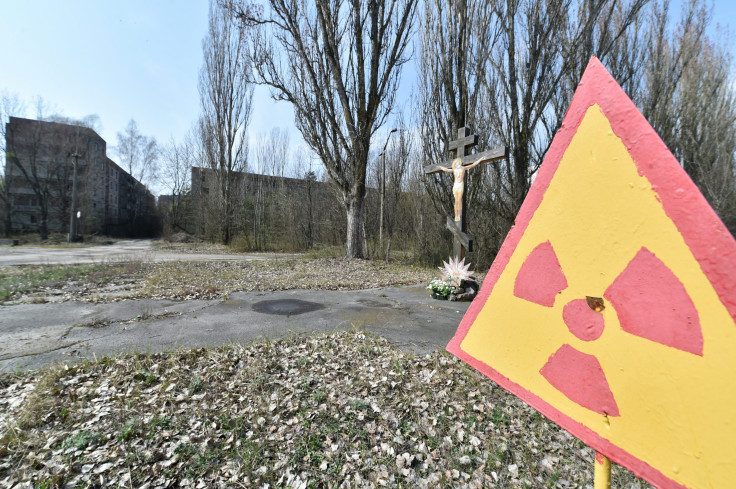Chernobyl Radiation Levels See Dramatic Spike As Russian Forces Seize Nuclear Site
KEY POINTS
- Chernobyl sits on the shortest route from Belarus to Kyiv
- Russia took the plant and its surrounding exclusion zone after a fierce battle
- The rise in radiation levels was attributed to a "disturbance of the topsoil due to the movement of a large amount of heavy military equipment"
Higher than usual gamma radiation levels were detected in the area near the decommissioned Chernobyl nuclear plant, hours after it was seized by the Russian military, following a battle with the Ukrainian forces Thursday.
Ukraine’s nuclear energy regulatory agency, the State Nuclear Regulatory Inspectorate, said Friday higher gamma radiation levels have been detected in the Chernobyl zone. However, details about the increase in the level were not revealed.
It attributed the rise to a “disturbance of the topsoil due to the movement of a large amount of heavy military equipment through the exclusion zone and the release of contaminated radioactive dust into the air.” Chernobyl sits on the shortest route from Belarus to the capital city Kyiv.
Russian troops took over the plant and its surrounding exclusion zone after a fierce battle Thursday.
Data from the automated radiation monitoring system of the exclusion zone, which is available online, indicate that the control levels of gamma radiation dose rate (red dots) have been exceeded at a significant number of observation points. pic.twitter.com/G4WEGgkMcT
— Verkhovna Rada of Ukraine - Ukrainian Parliament (@ua_parliament) February 25, 2022
But now it is currently impossible to establish the reasons for the change in the radiation background in the exclusion zone because of the occupation and military fight in this territory.
— Verkhovna Rada of Ukraine - Ukrainian Parliament (@ua_parliament) February 25, 2022
"After a completely senseless Russian attack in this direction, it is impossible to say that Chernobyl is safe," Mykhailo Podolyak, a Ukrainian presidential adviser, told local media. "This is one of the most serious threats to Europe today."
Russian Defense Ministry spokesman Maj. Gen. Igor Konashenkov said their airborne troops were protecting the plant to prevent any possible provocations, AP News reported.
Meanwhile, the White House on Thursday condemned “credible” reports Russian soldiers were holding the staff of the Chernobyl nuclear waste storage facility hostage.
“We’re outraged by credible reports that Russian soldiers are currently holding the staff of the Chernobyl facilities hostage,” White House press secretary Jen Psaki said during Thursday’s White House press briefing. “This unlawful and dangerous hostage taking, which could end the routine civil service efforts required to maintain and protect the nuclear waste facilities, is obviously incredibly alarming and greatly concerning. We condemn it, and we request their release.”
One of the reactors at Chernobyl, which is about 67 miles north of Kyiv, had exploded in April 1986 during a botched safety test. The radioactive strontium, caesium and plutonium mainly affected Ukraine and neighboring Belarus, as well as parts of Russia and Europe.
The multipronged assault on Ukraine began in the early hours of Thursday, moments after Russian President Vladimir Putin announced a “special military operation.”

© Copyright IBTimes 2024. All rights reserved.





















